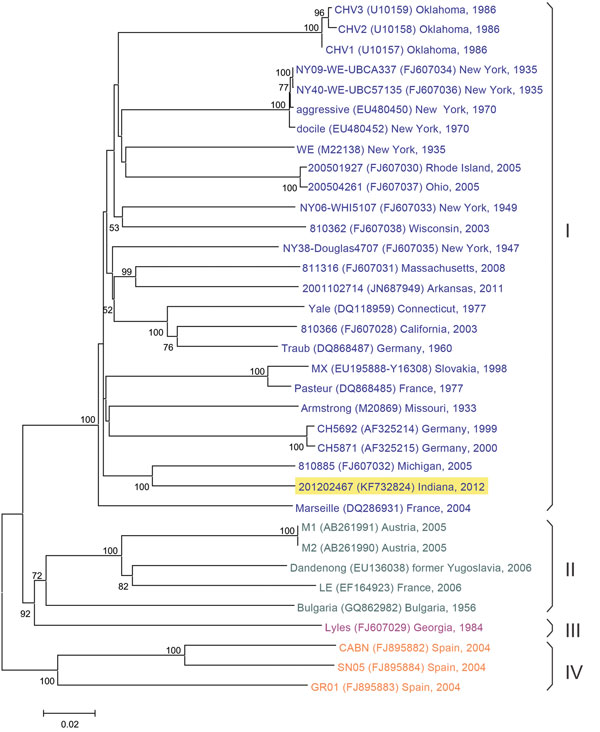Volume 20, Number 2—February 2014
Research
Lymphocytic Choriomeningitis Virus in Employees and Mice at Multipremises Feeder-Rodent Operation, United States, 2012
Figure

Figure. Phylogenetic tree comparing S RNA genomes of most representative lymphocytic choriomeningitis virus (LCMV) strainsEvolutionary analysis was conducted in MEGA5 Technical Appendix) by using the neighbor-joining methodBootstrap values listed at the nodes provide statistical support for 1,000 replicatesBranches corresponding to partitions reproduced in <50% bootstrap replicates are collapsedScale bar indicates substitutions per siteThe main LCMV lineages are indicated with roman numerals (I–IV)After the strain denomination, the location and date it was isolated are noted
Page created: January 17, 2014
Page updated: January 17, 2014
Page reviewed: January 17, 2014
The conclusions, findings, and opinions expressed by authors contributing to this journal do not necessarily reflect the official position of the U.S. Department of Health and Human Services, the Public Health Service, the Centers for Disease Control and Prevention, or the authors' affiliated institutions. Use of trade names is for identification only and does not imply endorsement by any of the groups named above.